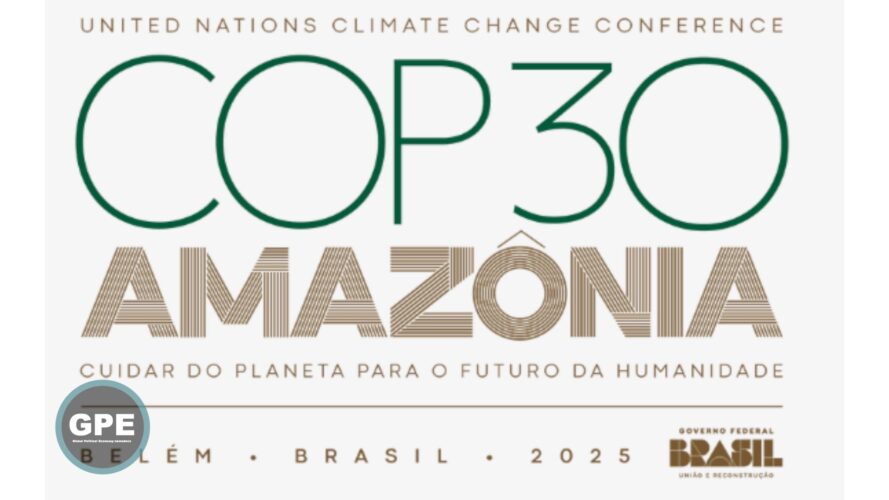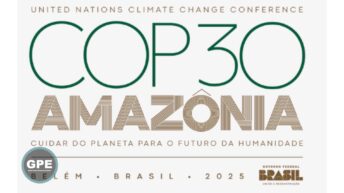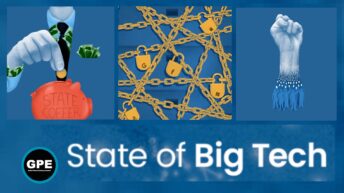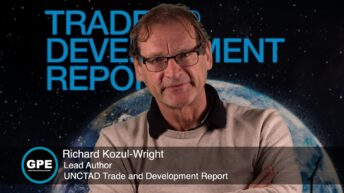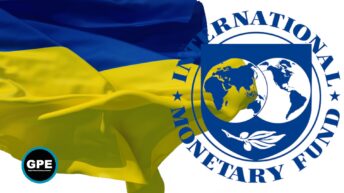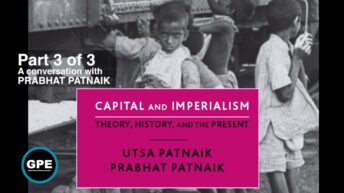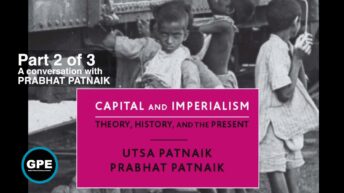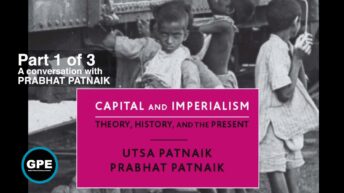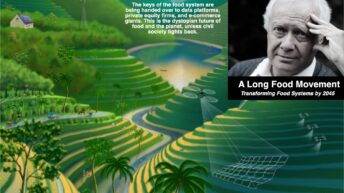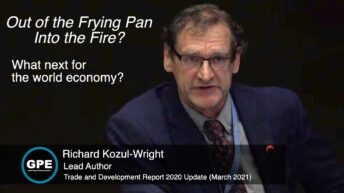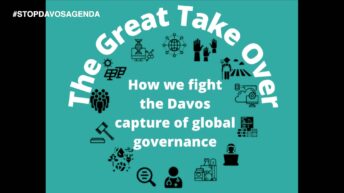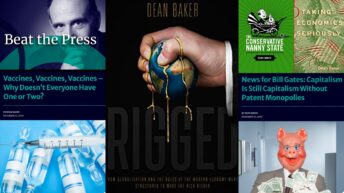Raj Patel and his fellow IPES-Food experts stress the centrality of addressing food systems, a key pillar of the Action Agenda for the COP30. The message uncovered by Lula’s bold policies is clear: ending...
Published Stories
James K. Galbraith (Entropy Economics) argues that economics cannot keep ignoring that energy and resources for production are no longer abundant and easy to access. Drawing from the fundamental laws of...
Jane D’Arista walks us through a comprehensive analysis of a global economy flooded with US dollar liabilities, economies bound to damaging export-led growth models, and vulnerable households piling up useless...
Jim Thomas portrays the 2024 Global Biodiversity Convention as a struggle between the interests of the world's biggest profit makers and the interests of people struggling to safeguard their planet, their food...
Jim Thomas says profit driven generative biology, Big Tech integration of artificial intelligence with synthetic biology, raises serious challenges for global oversight of biotechnology and governments need to...
Five experts raise red flag ahead of 2024 UN Biodiversity Conference (COP16 CBD) – Jim Thomas, Florian Rabitz, Ossama Abdelkawy, Lim Li Ching and Guy Kastler – each voicing the urgent need to...
John Bellamy Foster points to “Beyond Leviathan” by István Mészáros for insights into the ancient origins of the state and nature of its evolution over thousands of years, the necessity to move beyond...
Why governments further policy agendas that entrench and expand extractive industries that drive biodiversity loss is revealed in Exporting Extinction, a report exposing structural drivers incentivizing this...
Gilles Billen shows that industrial agriculture, propelled by international trade and specialization, has disturbed the nitrogen cycle. This has provoked the crossing of planetary boundaries and endangered the...
William Mitchell exposes the many ideological maneuvers progressives need to confront in disputing the supremacy of profits over employment and people’s dignity. That goes for disciplining the state to...
Jomo K.S. warns US policies are driving the world towards war and depression, leaving developing countries with a strong vested interest to reconvene a new non-aligned movement and strengthen democratic...
By reducing our reliance on chemical fertilizers, policy makers could turn today’s food crisis into a genuine opportunity towards shifting subsidies from agribusiness-led to agroecological-led farming...
The European Union is exporting more than 10,000 tons of bee-killing neonicotinoid pesticides a year to megadiverse countries despite having banned these chemicals from its own farms to protect pollinators...
Robert Pollin says PERI research findings published in ‘Fossil Fuel Industry Phase-Out and Just Transition’ demonstrate Just Transition policies are easily affordable in all high-income countries...
Remembering Salvador Allende’s speech at the UN in 1972 and the call of world nations for a New International Economic Order, Harris Gleckman explains how global corporations were more effective at setting the...
From fintech to food systems and social media to all domains essential for society and the economy, the State of Big Tech compendium of fifteen essays offers a vision and blueprint for the 99% to break out of...
Richard Kozul-Wright describes the current state of global economic disorder, as presented in UNCTAD's Trade and Development Report, and discusses possibilities and limits of effective regional responses.
GRAIN researcher, Devlin Kuyek says the report “An agribusiness greenwashing glossary” identifies ten key greenwashing terms used by Big Food & Big Agribusiness that serve to protect their...
John Bellamy Foster explains the ‘solution’ master-minded by global finance to resolve the imminent environmental crisis: create a multi-quadrillion dollars worth of assets on the back of everything nature...
The economic doctrine promoted by the IMF after the fall of the Berlin Wall brought massive damage to the countries now at war. Prabhat Patnaik looks at how the role of the IMF was instrumental to the advance...
James K. Galbraith discusses the shift of US capitalism from an industrial state to what he calls a Predator State: a finance-led, military-centered corporate republic. To overcome this he lays out what is...
Research by Tim Wise (GDAE-Tufts University) is conclusive and fully resonates with claims by Africa’s biggest grassroots movement, The Alliance for Food Sovereignty in Africa: the corporate capture of...
In this 3 part series, Prabhat Patnaik talks about his read on the history of capitalism from colonialism into the present which he breaks down into five distinct periods: (1) Colonialism prior to the First...
Prabhat Patnaik shows that as capital is relocated, real wages do not rise, inequality widens, and global demand is suppressed. The system remains in protracted crisis; Keynesianism in the North alone is no...
Prabhat Patnaik explains how the colonial system led to depression. Then, in advanced countries governments stepped in to increase demand and productivity, but how unless the periphery is available for...
Prabhat Patnaik reviews the connections between imperialism and capitalism through history to stress that by necessity of the accumulation of wealth, somewhere demand has to be suppressed to provide cheap...
Mega-corporations are all set to walk away with the keys to global governance of food and agriculture at the UN Food Systems Summit later this year. Pat Mooney talks about what is at stake and The Long Food...
For sustainable recovery from the COVID-19 global economic shock, it is imperative to break from policy choices that produce concentration of economic power and wealth in a limited section of the economy but...
Corporations have stepped beyond lobbying governments. They are integrating in policy making at the national and international levels. From agriculture to technology, decisions historically made by governments...
Intellectual property like pharmaceutical patents is part of the story why so many people face a long wait for COVID-19 vaccines says Dean Baker discussing the high cost of policy choices that make the rich...


